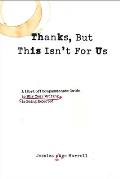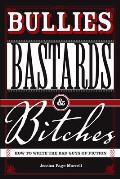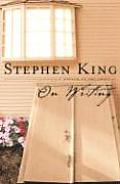
I
already wrote about the scary parts of childhood, but becoming a writer taught me that I wasn't born under a dark star — something I'm immensely grateful for. Because despite the creepy influences around me, my hometown is wrapped in rivers amid a land laced in lakes and forests. Water and the sound of it like a lullaby. Summer skies as blue as cornflowers and night skies like a magic show. Somehow the rivers and water, the power of place have slipped into my veins, echo in all I write.
The second influence about growing up to become a writer in a small town was that my family was poor. Not dirt-eating poor, Angela's Ashes poor, but the poor where you can always feel the lack and the nagging worry and the cold in the air. As in borrowing money from your mother-in-law poor so you can feed your six kids, or trekking down to grandma's for dinner of pancakes because we were low on food; hole in your shoes, empty closet, your parents buy your Christmas presents on credit at Montgomery Wards or Sears, then spend the following year paying off the bill poor.
Your parents bought you a bicycle for your sixth birthday and the bike is way too big for you because they cannot afford to buy you the in-between size and then buy you a bigger bike a few years later, so you crash the new bike — a red Schwinn that you'd give anything to own again — headlong into a parked car because you and your brother are late again heading for school and the bike is new and the hill is steep and at the top of that hill you know you cannot handle it, and sure enough, you get good and banged up, so you hide behind the tree in the schoolyard for a week because you don't want anyone to see your messed-up face. And meanwhile, it takes your parents a year to pay for the bike, something you learn forty years later.
Your parents were the kind who answered "go outside and play" or "go to your room" to most questions and whacked you a good one when half the time you don't deserve it, so you learned a lot about injustice and fierce tempers. But your dad never missed a day of work in his life, and walked in every night smelling like sweat and machines and asked with false cheer "Did any checks come in the mail?" as if pennies from heaven might drop into the mailbox, and he's the funniest person you know. Your mother sews you Barbie clothes and your Christmas dress and keeps a clean and charming house and has Martha Stewart skills a generation before Martha Stewart makes her billions. So although your parents are strict and low on compassion; life is orderly, the seasons unfold with a comforting regularity, and you eat chicken and mashed potatoes on Sunday.
 Switching to first person now, there is also music and a truly glorious outdoor world that we're part of every day. As in our large wooded yard with a swing set; in the nearby golden open fields, and the emerald of the woods across the street framing a burbling creek. Winter afternoons with sunlight casting the snow into a bed of diamonds or waking to intricate frost-covered windows as if ferns had been sketched into the glass. Simple things were fun such as digging night crawlers on summer evening with my brother so he could fish in the morning. Or kids running around outdoors in a huge sweaty, sunburned tribe until bed time. Or Fourth of July fireworks and Christmas Eve in a majestic, darkened church dazzling with candlelight. Four enormous trees always decorated the front of the church, the whole infused with the scents of pine and cough drops, and a cheery and raucous gathering at grandma's afterward. No matter how short of money my parents were, Christmas morning was always Disneyland.
Switching to first person now, there is also music and a truly glorious outdoor world that we're part of every day. As in our large wooded yard with a swing set; in the nearby golden open fields, and the emerald of the woods across the street framing a burbling creek. Winter afternoons with sunlight casting the snow into a bed of diamonds or waking to intricate frost-covered windows as if ferns had been sketched into the glass. Simple things were fun such as digging night crawlers on summer evening with my brother so he could fish in the morning. Or kids running around outdoors in a huge sweaty, sunburned tribe until bed time. Or Fourth of July fireworks and Christmas Eve in a majestic, darkened church dazzling with candlelight. Four enormous trees always decorated the front of the church, the whole infused with the scents of pine and cough drops, and a cheery and raucous gathering at grandma's afterward. No matter how short of money my parents were, Christmas morning was always Disneyland.
There was that cluster of aunts and uncles always gathering and jokes and singing. On Saturday nights we kids spied through the heat vent in the floor at the adult world below through a haze of cigarette smoke and laughter all sung to the sound track of Johnny Cash, Hank Williams, and Ray Charles. The adults practicing their harmonies to ballads and Sons of the Pioneer songs — still sung today at family get-togethers.
A life without frills was also a fertile start for a writer. We played games with few props, our tents were worn-out blankets tossed over the clothes line, then pushed into the ground with clothespins; we made our own paper dolls, we fashioned doll clothes from scraps of cloth. Each autumn we raked the fallen leaves into giant piles for jumping in, played hopscotch and jump rope, school (I was always the teacher and to this day enjoy creating handouts) and red-light-green-light-hope-to-see-the-ghost-tonight our singsong voices calling through the dusk descending on a summer evening.
And writing taught me to remember all the good stuff and that perhaps this was more important than the basket of hurts and crazies and not-enoughs that I carried into adulthood, too bent on suffering to realize my real legacy. In my first book, Writing Out the Storm, I wrote that it was like washing a window grimy with years of grease and grime and letting light into a lovely, treasure-filled room.
The other factor that sculpted me as a writer was that my parents owned books and were readers. In my childhood the heyday of the timber industry was over in northern Wisconsin, but its legacy remained. The town seemed strictly divided by class and income. There were neighborhoods of large, almost palatial homes owned by the lumber barons, executives, and mill owners, then there were the modest ranches and bungalows owned by the rest of the townspeople. Our neighborhood was mostly a blue collar place. The family across the street owned a bakery, one neighbor was a postal worker, another was a cop, and the rest of the parents worked in the shoe factory or paper mill in the region. My father was one of these factory workers although later he'd work for the post office.
 In Stephen King's book On Writing, he explained that reading is the creative center of a writer's life. It's something I've always noticed in myself and all my students and clients. When I was about four and my brother Shannon was six, we began regular excursions to the town library. In these days when parents don't allow children out of their sight, these trips seem particularly daring. The library is ivy-covered and nestled next to a winding river and park, and stopping along bridges to drop pine cones into the current, and pausing under weeping willows was an adventure in itself.
In Stephen King's book On Writing, he explained that reading is the creative center of a writer's life. It's something I've always noticed in myself and all my students and clients. When I was about four and my brother Shannon was six, we began regular excursions to the town library. In these days when parents don't allow children out of their sight, these trips seem particularly daring. The library is ivy-covered and nestled next to a winding river and park, and stopping along bridges to drop pine cones into the current, and pausing under weeping willows was an adventure in itself.
In the library I met Miss Violet the children's librarian who wore sweater sets and her pointy-rimmed glasses on a pearl chain. Under her benevolent gaze I discovered many books and writers, such as the Snip, Snap and Snur and Flicka, Dicka, and Ricka series about triplets written by Swedish author Maj Lindman. But most importantly I stumbled onto The Boxcar Children by Gertrude Chandler Warner which is the story of four orphans who for awhile live in the woods in a box car. The story of plucky orphan hood so sparked my imagination that I coerced my sister and cousins into acting out this scenario again and again on wintry afternoons, converting a closet to the boxcar or in the summer in a hidden place under cedars branches in our back yard.
What I hadn't realized until I was older was that my parents were the only adults in the neighborhood who owned books besides the Bible. There was a book case that held my father's books collected since he was a boy by Zane Grey, Jack London, and Louis L'Amour about dogs like White Fang and horses and scoundrels of the old West. And then when I was about ten a young man with severe acne knocked on the door, selling Colliers encyclopedias to work his way through college. My parents bought the set on an installment plan and the books arrived one by one in the mail along with a set of Junior Classics that included Gulliver's Travels, The Adventures of Tom Sawyer, and Treasure Island.
At Christmas we were also given books as gifts and I received The Bobbsey Twins, Little Women, and Nancy Drew mysteries and started my own collection. I was secretly Jo March, dashing off to cut her luxurious hair to help out the family, a girl awash with romantic notions about writing, a girl with an often black and envious heart, longing for fancy clothes and patent leather shoes. Reading and scribbling away in my bedroom under the maple trees made me imagine myself as someone noble or heroic and that perhaps it's not always bad to be an uppity girl and a big dreamer.